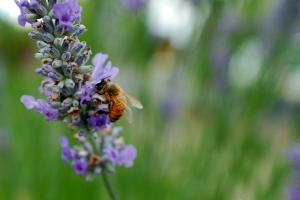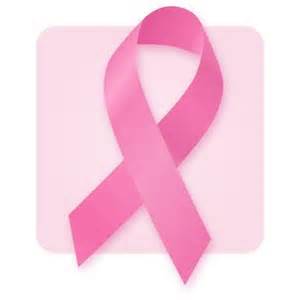My mom was diagnosed with breast cancer in 1972—she was 42 and I was 10. It was before chemotherapy, radiation, and breast reconstructive surgery. She took the bold step of having a radical mastectomy with my dad’s full support, a surgeon who respected her decision, and an attitude in which she never really looked back only forward. I would say life changed for her, but I’m not really sure it did. She was glad to be alive, went on with her profession as a college professor, got her doctorate, and she was my mom—she just didn’t have her breasts.
When I was a teenager we talked about it—how her mother, grandmother, and great-grandmother had breast cancer. At that moment it became my heritage. Life didn’t change a lot I just started having mammograms earlier than my friends and Mom made sure I knew how to do a self-breast exam. Life went on, I married a wonderful supportive man who knew my family history, became a veterinarian, and had two girls of my own. 20 years later Mom became a real breast cancer survivor. We always knew she was a miracle but then it became official. However, when Mom turned 66 cancer entered her life again as she was diagnosed with ovarian cancer. At first it was thought that maybe this was a manifestation of the previous breast cancer, and then we learned it was a different cancer, but they were linked together genetically. Gene testing was just rearing its head but she was told that to have those two cancers meant she had to have a breast cancer gene—all of the sudden this family history became very real in our lives.
At this point life did change—it became filled with surgeries, chemotherapy every 3 weeks, blood tests, drugs to control vomiting, deep talks about the future, and learning how to say good-bye to a person who meant the world to me. I was with Mom for every chemotherapy treatment except the first one, as it was done in the hospital following the initial surgery, and I had to work. Eventually, I adjusted my work schedule to correlate with her treatment schedule. Often, our youngest daughter, who at the time was 4, came with me to the cancer treatment center. We read books together while the toxic drug was poured into Mom’s veins, hoping it would annihilate the cancer cells that were trying to take her from us. Our relationship changed as I watched this strong independent woman who was my mother and had always been in charge of her life, falter and become unable to make decisions. She would turn to me for help and it was difficult for me to take that leadership role from her. Then she would feel better and the reins of life would be returned to her. We eventually learned how to do this trade back and forth with grace and ease. For a while, the therapy worked and she went into remission for 3 wonderful years. Then it returned with a vengeance and wouldn’t respond to the same drugs so different drug protocols were tried; they would work for a while and then not. Eventually one day Mom looked at me and said, “I’m done, I just want to come home with you. I want to be in your home, with your family, and you holding me in your arms when I go to meet my God.”
My mom gave it a good fight, tried not to let the cancer rule her life, and went on fulfilling her life goals becoming a mediator and a CASA (Court appointed special advocate for neglected/abused children) in her retirement years but the cancer eventually won the battle. She died at 72 and I was 39. Yes, she died in our home and in my arms as she wished. I provided the hospice care for her, my children learned about death, and I lost one of my best friends at much too young of an age. My world was not the same but my mother taught me not only how to live but how to die with grace and dignity.
So, here the story changes to my story. At 42 I had my first lumpectomy and the mass was benign. 5 years later I had a second lumpectomy and the mass was classified as atypical ductal hyperplasia—what they called a pre-pre cancer. Due to my family history, I consulted with an oncologist who sent me directly to the genetics department to be tested for the BRCA-1 and BRCA-2 gene mutations, with the knowledge that she was 100% sure I would test positive, as was the genetic counselor who took my history. However, I tested negative. This is good, right? Yes and no. I now know I do not carry the most common breast cancer gene mutations and thus could not have possibly passed them on to my own daughters. Also, my odds of developing breast cancer have dramatically decreased, however, I do not know if my mother carried one of these mutations. There are also other gene mutations that she could have carried and passed on to me—these can’t be tested for because my mother is no longer living. So, there does remain a cloud around the futures of my daughters and myself.
I am currently seeing my oncologist every 6 months, having a mammogram once a year, and a breast MRI once a year at 6-month intervals. I have also consulted with a plastic surgeon that does breast reconstructive surgery and am contemplating having a radical mastectomy. I have previously had my uterus and ovaries removed as preventative measures. I have always known I would have to make these personal decisions but I figured I would have cancer when making them. Now, that it is here, without cancer and with the knowledge I have, it feels different then I imagined. I often feel very raw and overwhelmed by the decisions that are before me. I have so many more choices than my mother did and different personal health issues that come into play with my decisions, as well.
So, yes cancer has changed my life although it hasn’t hindered my ability to reach life goals it has stretched me, made life more precious to me, and taught me not to take any human relationship I have lightly. If there is anything to pass on to my girls it is what I learned from my mom—to face life head on without blinders, to be proactive and preventative in action, and to bravely take on whatever gets thrown at you even if it’s cancer and if it is cancer not to let it rule your life.
———-
Cathy is a Doctor of Veterinary Medicine who specializes in felines. She loves cooking, baking, and filling her home with people to feed. She and her loving husband of almost 30 years live in a small town in the Northwest. Their second daughter recently moved out and they are beginning to enjoy the new-found freedom of an empty nest. She also happens to be my mother.


